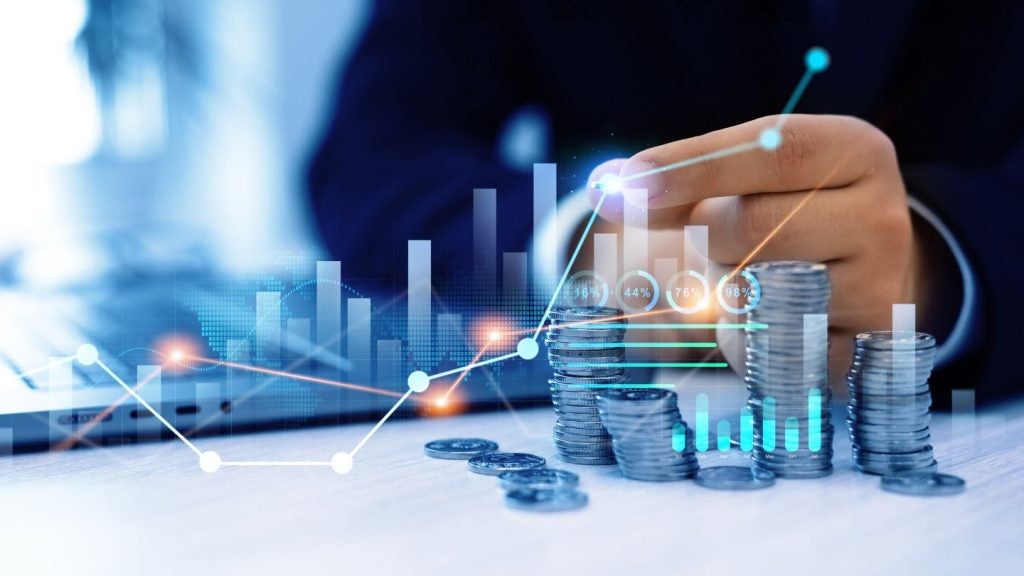
Leasing activity in Germany declined in 2020, mirroring the more general economic trend across the country due to Covid. However, one area of improvement in the sector has been the market penetration by leasing in the equipment finance market as the preferred type of finance during the downturn. Another silver lining is the growing popularity of consumption-based, user-pays, financing models, reports Che Golden
German leasing customers have found it easier than their European counterparts to fend off the ravaging effects of lockdown on their businesses, according to one industry expert.
While there is a huge amount of liquidity in the market and many schemes in place to help businesses cope financially, indications are that German companies are nearly back to normal in their payment behaviour.
Leasing firms are showing signs of shaking off a bunker mentality for dealing with Covid-19 and are looking to the future. Also, trends in energy-efficient investments are moving to the top of the list of priorities for customers and leasing companies alike.
“Overall, 2020 showed a lower than initially anticipated setback in total leasing volume for Germany, which was very much in line with GDP development,” says Stefan Stübing, group sustainable finance lead, ABN AMRO Asset Based Finance in Germany.
“A typically strong last quarter for corporate CapEx in 2020 was clearly behind the fourth quarter of 2019, but the first quarter of this year already showed an upward trend compared to last year’s Covid-impacted first quarter. This positive trend has further materialised with a healthy investment climate for most of our clients. We see increasing order books of our clients.”

US Tariffs are shifting - will you react or anticipate?
Don’t let policy changes catch you off guard. Stay proactive with real-time data and expert analysis.
By GlobalData“While there was an 8.6 per cent drop in the value of new equipment leased, the penetration rate of leasing in the equipment finance market rose to 25.2 per cent,” says Dr Claudia Conen, director-general of Bundesverband Deutscher Leasing-Unternehmen (BDL, the Federal Association of German Leasing Companies), whose 150-member trade body says it represents 85 per cent of the leasing market volume in Germany.
“This was a renewed indication of the advantages of leasing, in particular for companies caught up in the crisis and struggling to protect their liquidity. Leasing companies managed to provide fresh liquidity through sale-and-lease-back (SLB) agreements. In 2020, 8 per cent more SLB agreements were concluded than in the preceding year.”
SME insolvencies
German firms seem to have weathered the storm far better than their European counterparts, according to Claus Henneberger, head of sales for SGEF Germany (GEFA). “The number of insolvencies remains currently extremely low,” he says. “Companies are supported by liquidity loans via the German development and investment banks and non-refundable subsidies which helped most of the companies to come through the crisis. In addition, some leasing companies helped their customers with lease programmes with deferred or reduced lease payment plans, but currently, nearly all customers came back to a normal payment behaviour which is different to many other European markets.”
However, while German insolvencies may be low, Stübing expects ratios to begin to rise by year-end, but he remains unsure of its market impact.
Insolvency Suspension Act: Following an amendment of the German Covid-19 Insolvency Suspension Act, published on 19 February 2021, an exception applies until 30 April 2021 under certain circumstances to over-indebted and insolvent companies that had applied for financial aid from the Covid-19 state aid programme between 1 November 2020 and 28 February 2021, or for those for which it was impossible to apply during that period, according to German restructuring and insolvency experts Noerr.
Going digital, keeping sustainable
The pandemic has brought to the fore relatively new business models that leasing companies believe are here to stay. “Innovative usage-based financing models such as pay-per-use offer added value for customers,” says Dr Conen. “Here, the rate [charged] is largely calculated depending on the actual use of a machine or system. For example, restaurants or hotels pay for the use of catering dishwashers per wash cycle instead of a fixed usage rate. Studies indicate that such billing models are currently in greater demand.”
The idea has been offered by leasing companies in the past, but as Dr Conen pointed out, pay-per-use is being revolutionised by the Internet of Things (IoT). “This is because IoT enables real-time data exchange on the use and performance or necessary service units of the asset,” she says. “This will once again fuel the idea of use instead of ownership – the guiding principle of leasing – and thus strengthen the relevance of leasing for the digital transformation of the economy.”
“It goes without saying that the digital transformation and sustainability aspects are also of particular relevance to the finance and leasing sector,” says Kerstin Blank, marketing communications manager EurAsia, of DLL.
“Finance solutions have a major bearing on how quickly and extensively companies can adapt to such changes. We respond by developing corresponding solutions. Especially interesting are the so-called pay-per-use finance models. Subjects related to the sharing economy are also exciting. As a result, business models are shifting – when a company increasingly outsources services, for example, or only temporarily uses certain resources for certain services.”
Blank has seen an increased willingness to use digital processes, mainly in the usage rate of the DLL partner portal or the DLL finance app. “Some partners are already using these platforms to complete the majority of their transactions,” she says.
For Grenke, the shift to digital has caused a boom. It has its own digital solutions such as eSignature, a smart portal for its partners, and the signing app were previous steps to make life easier for suppliers and resellers, but also for lessees.
“Our eSignature, which was introduced in 2015, enables us to process lease contracts entirely digitally,” says Dominic Möhrmann, vice president of sales Germany, Grenke. “More than 30 per cent of all contracts have been processed completely digital in the meantime.”
According to Möhrmann, the pandemic has accelerated existing digital developments and he has seen an uptick in demand for leasing solutions across the SME sector. “We now see how important it is for companies to be able to restart their businesses,” he says. “We have equipped companies and specialist retailers with air purification systems and disinfection stations, provided hospitals and doctors’ surgeries with IT infrastructure, and made schools fit for digital distance learning.”
However, the demand for digitisation has not resulted in a pick-up in sales for mobile equipment business, in fact, Covid has led to a drop in investment in this sector as it has everywhere else.
Yet leasing companies have still made gains in terms of market share. “In the wake of several lockdowns, total investments in mobile equipment fell by 11.3 per cent in Germany in 2020 and so did the overall volume of assets financed through leasing – down by 8.6 per cent to €60.5bn,” says Eric Gandemer, CEO DACH (Germany, Austria, Switzerland) cluster, BNP Paribas. “However, leasing cemented its role as a key finance alternative and the penetration rate for leasing even rose to 25.2 per cent. This effectively means that a quarter of all investments in mobile equipment are now realised via leasing.”
Automotive sector
The industry most affected by all this has been the automotive sector. According to Stübing, this sector has been struggling, not only because of Covid, but before that due to structural changes, such as electrification. “Connected to this are upstream industries, like chemicals or industrial production companies. They also suffered given that the supply chain is being very much integrated,” he says. “Export-oriented companies showed a very diverse picture, given different developments in specific market environments – China-related business was recovering much earlier than those related to the US, for example. Then there have also been the directly impacted sectors, like leisure or travel, but to be honest, here the leasing industry exposure is not too high.”
It might seem Covid has put life on hold, but new trends in investment and new business models are coming quickly down the track and leasing companies need to be prepared if they do not want to find they are left behind. For instance, new approaches to IT lifecycle management such as those offered by BNP Paribas 3StepIT leverage circular economy concepts and respond both to economic and sustainability demands. The joint venture between BNP Paribas Leasing Solutions and 3 Step IT opened for business in Germany in July 2020.
Customers are increasingly concerned with the sustainability of their leasing deals. A study conducted in early 2020 by the German Leasing Association on Trends in the Leasing Sector showed that every second company using leasing is planning investments in “green assets” for which leasing is clearly the most favoured finance alternative.
“Nearly every investment is channelled by the question of its CO2 consumption,” says Henneberger. “It starts with the requirement of new engines for trucks and passenger cars up to more energy-efficient or fully emission-free solutions for public transport or production facilities or even to new investment goods to produce green energy like solar panels. We have established a separate sustainable finance department to support customers in financing these types of assets for which often leasing is the first product of choice.”
“Given the high amount of liquidity in the market (ECB quantitive easing, government support schemes etc.) the pressure on margin remains high, with clients being able to choose from a wide variety of funding sources,” says Stübing.
“What we see as a reaction of market participants is enhanced focus on future technologies/assets and business models with future winning ability. We are focusing especially on transition themes as part of ABN AMRO’s Northwest European strategy.
“By focusing on energy, mobility and digital transition-related assets and clients, we acknowledge a changing market environment, which we are focusing on more and more in the future. This is seen as a direct result of an ongoing transition in our economy, and ABN AMRO’s strategy to support its clients in their shift to sustainability.”
Like many other markets experiencing a Covid bounce, Germany is off to a good start this year. “In the first quarter of 2021, new equipment business including hire purchase by BDL members rose by 3.5 per cent,” says Dr Conen.
“In addition to the volatile big-ticket segment of aircraft, watercraft and rail vehicles, commercial vehicle leasing performed particularly well, rising by almost 12 per cent. Car leasing remained stable compared to the strong first quarter of 2020. Machinery leasing increased slightly (1 per cent). The comparative quarter of 2020 was still largely unaffected by the pandemic measures, which did not begin until the first lockdown in mid-March.”
“The main uncertainty for manufacturers of leasing goods and leasing companies is the delivery delay caused, for example, by the shortage of semiconductors and other components,” says Henneberger. “While the order books are full, many of the new orders cannot be delivered in the current calendar year anymore and will therefore not result in booked leasing business in 2021. In the end, the delivery delay will determine the level of growth that we will see this year.”
The supply chain issues on mini pieces can harm complete industries and influence all kinds of aspects of a financial transaction, from lead times to use times, from the cost of replacement to the cost of maintenance and of course from specification of equipment to value development,” says Blank. “Being on top of that and supporting our partners and customers is high on the agenda in all our discussions.”
2022 and beyond
DLL is also looking with interest towards the Bundestag elections, to be held on 26 September, because that is where Blank believes the future framework conditions for SMEs will be set. “SMEs are Germany’s strength and leasing companies are the partners that support and stimulate innovations and investment,” she says.
Politics aside, confidence in a return to 2019 levels of business is high. “As leasing accounts for 50 per cent of externally financed investments, it will continue to realise critical investments, particularly including those in support of digital transformation and sustainability,” says Gandemer. “The disruption to production capacity and supply chains is likely to impact the leasing market until the end of 2021. However, the demand remains strong and is expected to return to levels seen at the end of 2019.”
“We expect a moderate growth of our new business volume based on a stable market environment for 2021, compared to 2020, assuming the Covid crisis remains well controlled, and no further lockdowns are required,” says Stübing.
“Given CapEx investments mostly show a little delay compared to growth in GDP, we expect a return to 2019 market volumes from 2022 at the earliest, but more likely in 2023. However, the latest business climate indices, as well as our own discussions with clients, are very positive and give us hope for good business opportunities for the rest of 2021,” he says.







